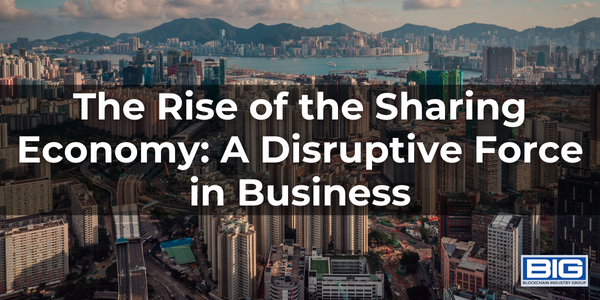
It’s hard to deny that the sharing economy has changed the game in many industries. From renting out your spare room on Airbnb to hailing a ride with Uber, the sharing economy has made it easier than ever to monetize your assets and save money on everyday expenses. But beyond the conveniences it offers, the sharing economy is a force that’s revolutionizing the way we think about business and ownership.
I Remember When Sharing Was Caring…Just for Cookies
I remember the days when sharing meant sharing cookies at school or lending a pen to a classmate. Now, sharing has taken on a whole new meaning. In the last decade, we’ve seen the rise of companies like Airbnb, Uber, and TaskRabbit, which allow people to share their homes, cars, and labor with others in exchange for money. It’s a win-win situation for both the provider and the consumer. The provider earns some extra cash, while the consumer gets access to goods and services at a lower cost.
Sharing is the New Owning
The sharing economy has upended the traditional business model and shifted the focus from ownership to access. Instead of buying a car, you can rent one through Zipcar. Instead of buying a home, you can rent a room through Airbnb. This shift has major implications for the economy, and it’s changing the way we think about the value of our assets. In the past, the value of an asset was tied to its ownership. Now, the value of an asset is tied to its ability to generate income through sharing.
The Power of Peer-to-Peer
One of the most exciting aspects of the sharing economy is its peer-to-peer nature. Instead of going through a middleman, consumers can connect directly with providers, cutting out the need for intermediaries and lowering costs for both parties. This is especially true for services like Uber and TaskRabbit, where consumers can find a provider that’s nearby and able to meet their needs.
The Future of Work
The sharing economy is also having a major impact on the future of work. For example, platforms like TaskRabbit and Fiverr allow people to offer their skills and services to others in exchange for money. This is providing new opportunities for people to earn income, especially for those who may not have the skills or qualifications to work traditional jobs. It’s also changing the way we think about work itself. Instead of working 9-to-5 jobs, people are able to work on their own terms, setting their own schedules and choosing the jobs they want to do.
The Potential Downsides
Despite the many benefits of the sharing economy, there are also some potential downsides. For example, many workers in the sharing economy are classified as independent contractors, which means they don’t receive benefits like health insurance or paid time off. This has led to concerns about worker exploitation and a lack of job security. Additionally, some people are concerned about the impact of the sharing economy on traditional industries, like the hotel and taxi industries, which are struggling to compete with new entrants like Airbnb and Uber.
Finance and the Promise of Future Technology
—
Healthcare and the Promise of Future Technology
—
Interacting with Web3 in the Decentralized Future
The Bottom Line
Overall, the sharing economy is a disruptive force that’s changing the way we think about business, ownership, and work. While there are some potential downsides, the benefits are clear: it’s providing new opportunities for people to earn income, making it easier and cheaper for consumers to access goods and services, and changing the way we think about the value of our assets. Whether you’re a fan or a skeptic, there’s no denying that the sharing economy is here to stay.



